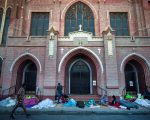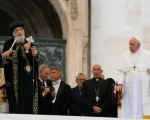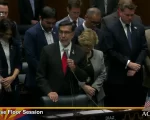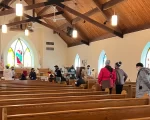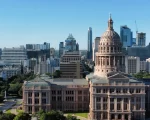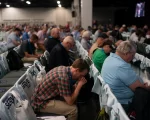News
Faith-Based Refugee Resettlement Agencies Denounce New Asylum Rule
The new rule, which goes into effect May 16, rejects asylum claims for most people who cross the border but do not first seek asylum in Mexico.
Amid Confusion Along US-Mexico Border, El Paso Pastors Provide Migrants with Shelter & Counsel
As changing policies, rampant misinformation, and exasperated, fearful crowds converge in this desert city, faith leaders are striving to provide shelter and uplift. Along with prayers, they are counseling migrants about the daunting challenges that await them on U.S. soil, with enormous backlogs in asylum hearings and the Biden administration’s newly announced measures that many consider stricter than the existing ones known as Title 42.
More than 50 Churches Burned Amid Political Unrest in India
Violence erupted against Christians in Manipur, India, last week amid political turmoil and tension between the Hindu population and minority Christian groups.
Catholic, Coptic Orthodox Popes Offer Joint Vatican Blessing
In welcoming Tawadros, the Coptic Orthodox patriarch of Alexandria, Egypt, Francis recalled that Wednesday marked the 50th anniversary of the first meeting between a Catholic and Coptic Orthodox pope.
Spiritual Squabbles in Statehouses
This issue of A Public Witness looks at recent faith squabbles in statehouses and how this could impact Christian Nationalistic legislative efforts in a Capitol near you.
COVID-19 Health Emergency Is Ending but Faith-Based Vaccine Clinics Continue
Over the last few years, African American congregations have provided outsized action on getting people tested and vaccinated.
Texas Legislature Passes Bill Allowing Chaplains in Public Schools
‘I worry that this bill will lead to Christian nationalists infiltrating our public schools and indoctrinating our students,’ said Texas state Rep. James Talarico, a Democrat and Presbyterian seminarian.
Southern Baptists Lost Nearly Half a Million Members in 2022
The Southern Baptist Convention has lost 3 million members since 2006, about half of that in the last five years.
Why Habitat for Humanity’s Theology of the Hammer Offers Hope in Polarized Times
For nearly five decades, Habitat for Humanity has inspired people from different backgrounds — who often can’t agree on anything — to work together for their neighbors’ benefit.
The IRS Just Hiked Taxes on Private Jet Flights. Pastors Are Not Excluded.
The tax increase impacts flights on employer-owned planes — including those owned by ministries.


